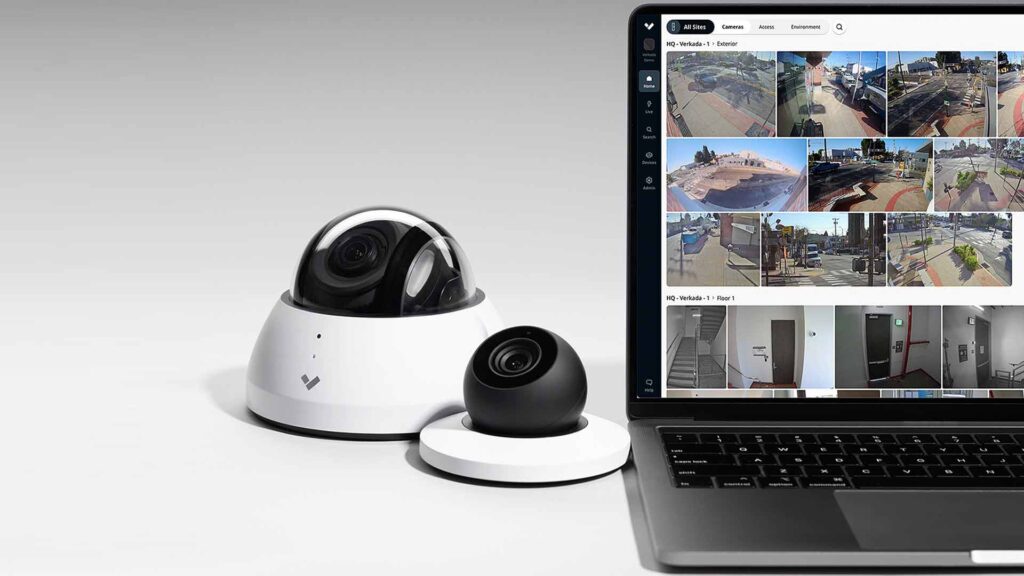Selecting the best security camera system for business is a significant decision to ensure you achieve security and optimize your business activities. There are numerous video surveillance systems to choose from and identifying the most suitable one for your business may be a herculean task. Here is a step-by-step guide on how to choose the right security camera system for small business video surveillance.
1. Assess Your Business Needs
Prior to using video surveillance systems, it is important to analyze the needs of your business specifically in the security field. Such aspects may include the size of the premise, the risky areas (such as the entry and exit points, car parking or warehouse area) and whether you require indoor, outdoor, or a combination of cameras. A small business needs a few cameras to capture any vulnerable area in a big building.
2. Analogue vs. IP Cameras: What’s the Difference?
When it comes to choosing the cameras to purchase for your small business video surveillance, you have to compare and contrast analogue cameras with IP (Internet Protocol) cameras. Analogue cameras are cheaper, provide less resolution and are hardwired which offers little flexibility.Analog cameras are directly connected to recorders, eliminating the need for internet switches and resulting in cost savings. However, analog systems are not expandable beyond a certain limit. It is good for small and emerging businesses that prefer simple surveillance without having to spend much.
In contrast, IP systems provides flexibility in terms of expansions. IP cameras have full HD vision and sophisticated functions such as motion detection, and remote control, which makes them perfect for companies with various needs and requirements.
3. Opt for a Scalable System
A good small business video surveillance system should be expandable so that the owner can add more cameras or better storage systems as the business grows. One major advantage of IP camera systems compared with analogue systems is that they are usually simpler to expand, as they rely on network connectivity rather than individual cables for each camera.
4. Storage Solutions: DVR vs. NVR
In the same way that DVR (Digital Video Recorder) systems are associated with analogue cameras, NVR (Network Video Recorder) systems are related to IP cameras.
Small businesses simply have to consider the amount of money they can afford to spend as well as the quality of the shots they require. If high-definition images together with remote access of the system is of utmost importance then it is more appropriate to opt for the NVR-based system.
5. Consider Monitoring and Accessibility Features
A majority of today’s video surveillance systems are capable of monitoring the business remotely, which makes it possible for an owner to monitor their business even when the owner is offsite. Choose systems which come with a mobile app or web interface, enabling real-time monitoring from anywhere. Some systems even include various video analytics (which could be part of a camera or recorder) like motion detector alerts,head count, tripwire and the like further using two-way communication and hooter for more enhanced security.
6. Prioritize Durability and Weather Resistance
If you are in a business that calls for installing security cameras outside your premises, make sure that the cameras are resistant to bad weather. Cameras mounted outside should have adequate IP ratings for protection against rain, dust, extreme temperatures and vandalism proof. The longevity of an investment is another attribute to consider that makes the outdoor cameras stand out. Nowadays cameras are available which are dust proof, weatherproof and waterproof which complies to IP rating 65/66.
Modern security cameras come equipped with advanced capabilities such as motion detection, which allows the camera to automatically start recording when movement is detected, ensuring that no critical moments are missed. Additionally, many cameras now offer edge based video analytics, enabling real-time alerts for specific events, such as unauthorized access, unusual activity within a designated area and camera tampering alerts.
Inbuilt Two-way audio and hooter is another valuable feature, allowing communication between the camera and the user, which can be particularly useful for businesses that require interaction with customers or staff remotely.
Modern security cameras come equipped with advanced capabilities such as motion detection, which allows the camera to automatically start recording when movement is detected, ensuring that no critical moments are missed. Additionally, many cameras now offer edge based video analytics, enabling real-time alerts for specific events, such as unauthorized access, unusual activity within a designated area and camera tampering alerts.
Inbuilt Two-way audio and hooter is another valuable feature, allowing communication between the camera and the user, which can be particularly useful for businesses that require interaction with customers or staff remotely.
7. Invest in a Comprehensive Solution
The best security camera system for small businesses is the one that affords comprehensive protection, including integration with alarms, access control, and even emergency response systems. In addition, some of the complex systems may incorporate video analytics that might be used for surveillance purposes or for increasing the flow of the business.
8. Budget Considerations
When selecting video surveillance systems evaluate costs connected with it such as maintenance, storage, and the services of monitoring. The more advanced systems come with better equipment as well as a wider range of monitoring services although for a relatively expensive price.
Conclusion
Deciding on a small business video surveillance system means that there ought to be a focus on price, available capabilities and future requirements. Therefore, regardless of the type of security system you decide to install, make sure it has the capacities of scalability, remote control, and enough storage that may adequately attend to the security wants of your business.
Searching for a trustworthy video surveillance system for your business? Check out the services offered by Intellve. It is a software company that employs modern technologies for video and alert management in real-time. Contact them today, and get set for a secured endeavor.
Searching for a trustworthy video surveillance system for your business? Check out the services offered by Intellve. It is a software company that employs modern technologies for video and alert management in real-time. Contact them today, and get set for a secured endeavor.



